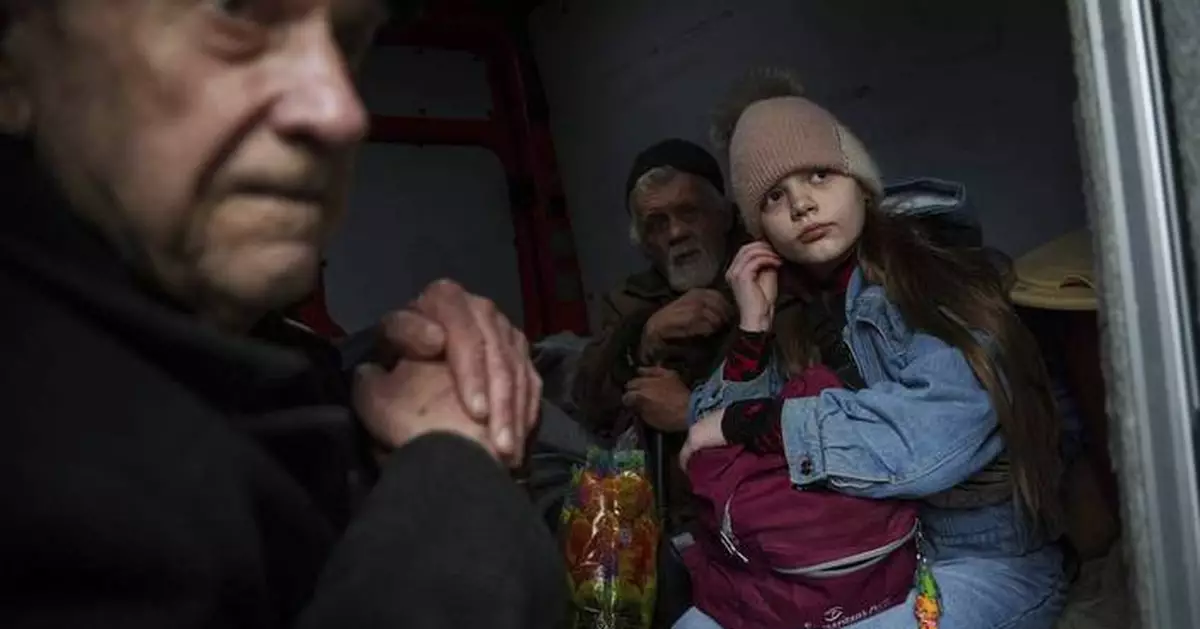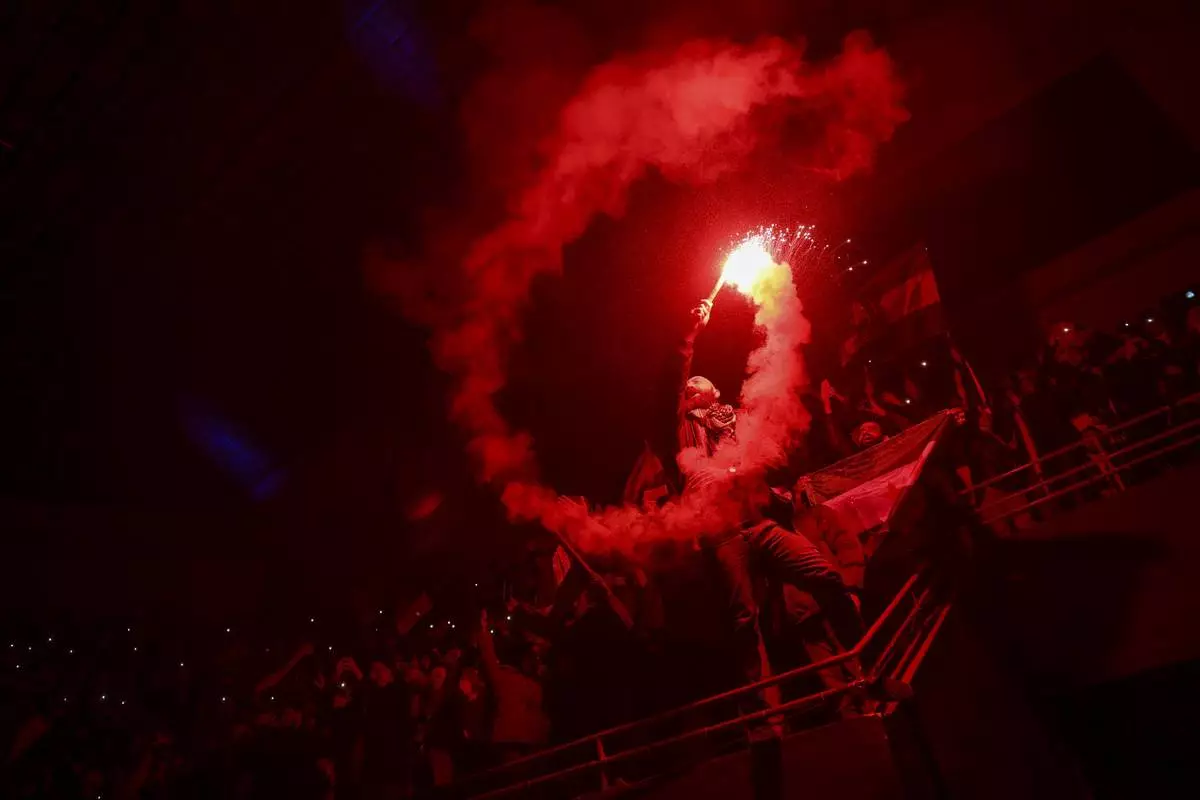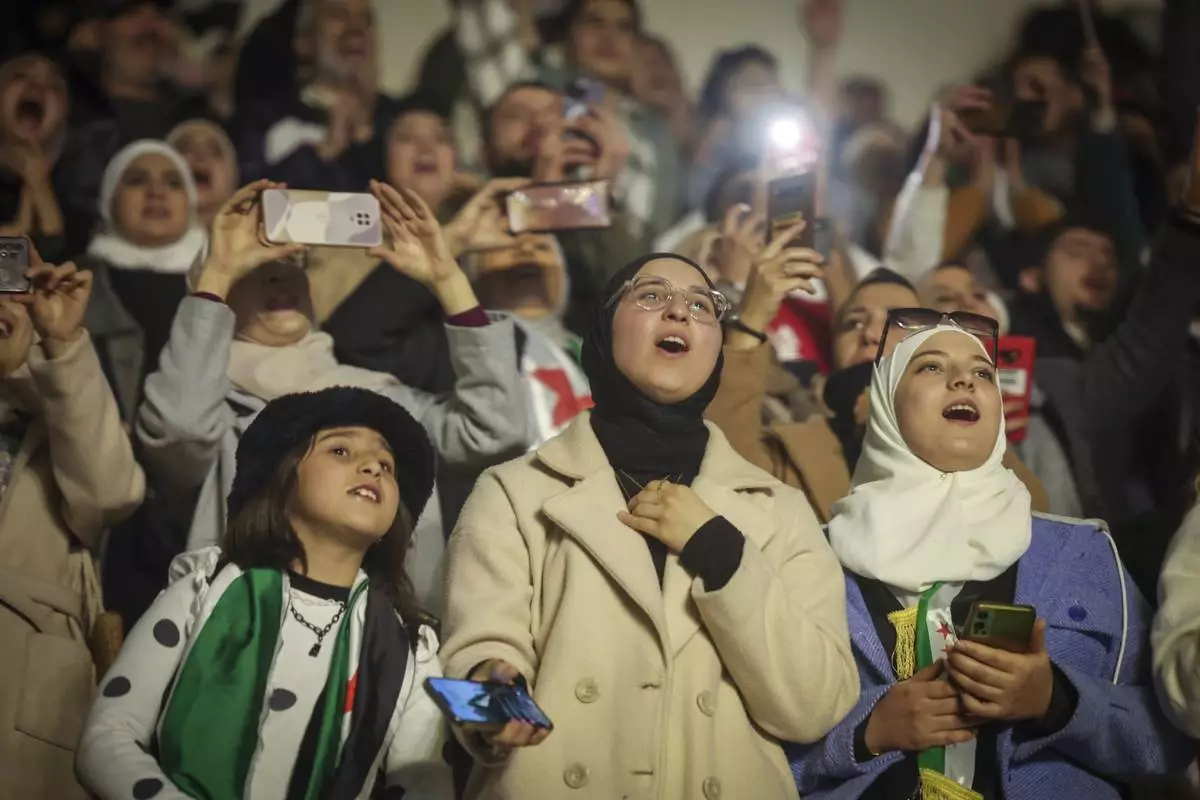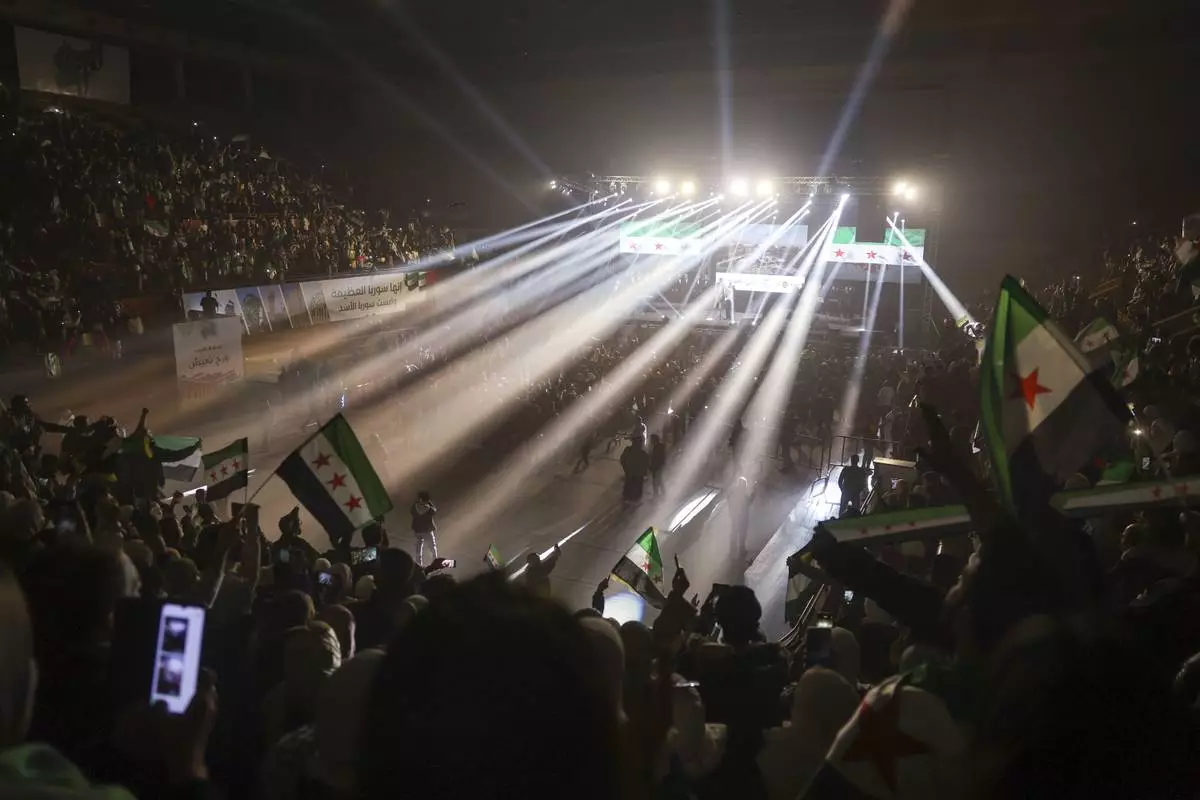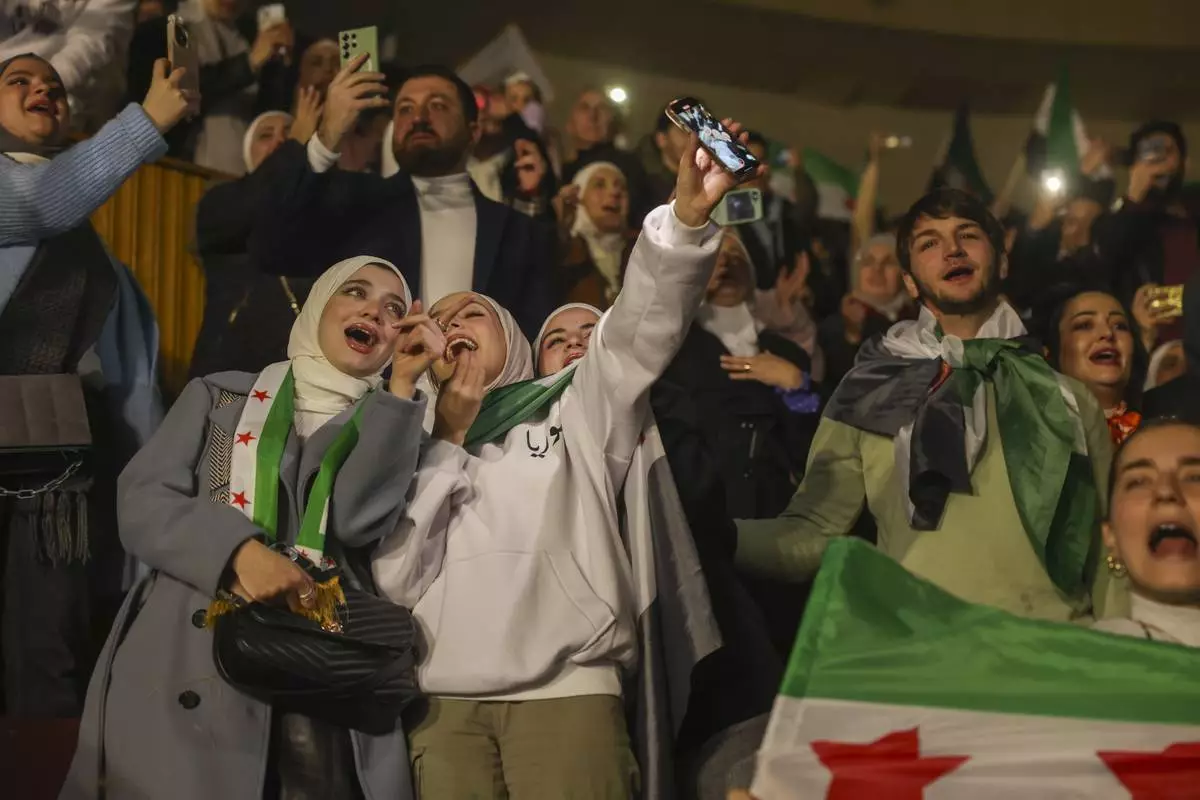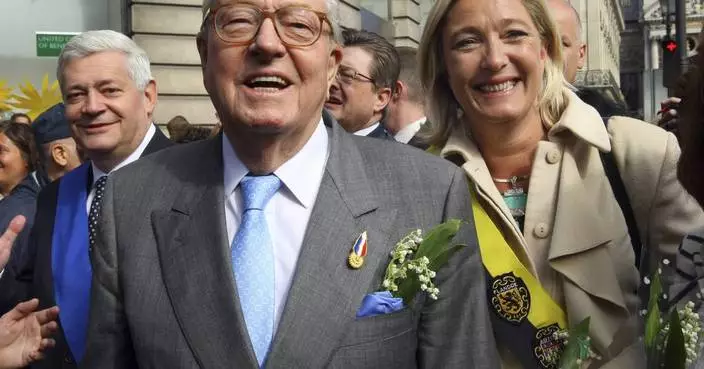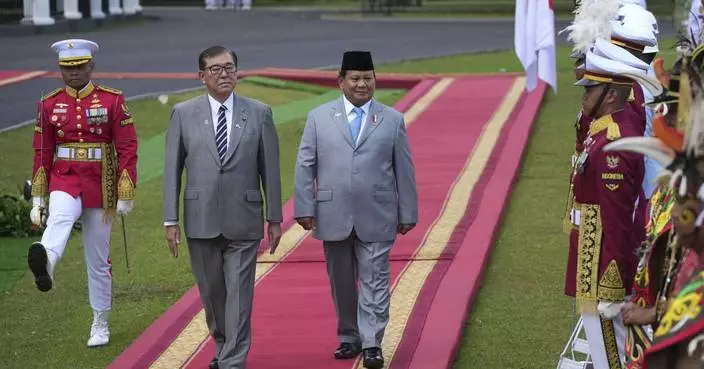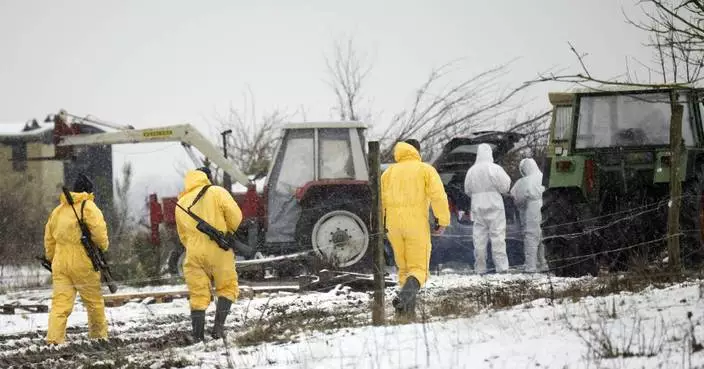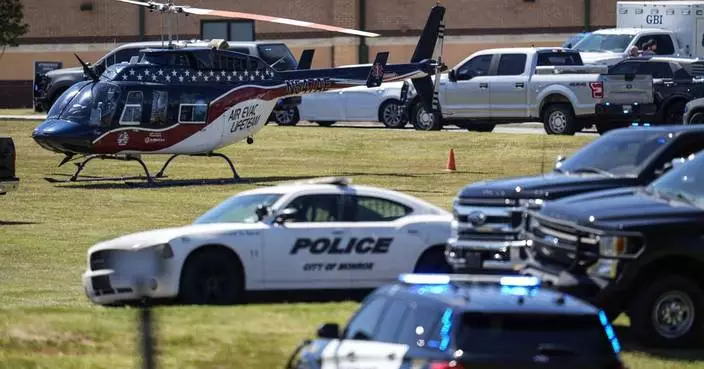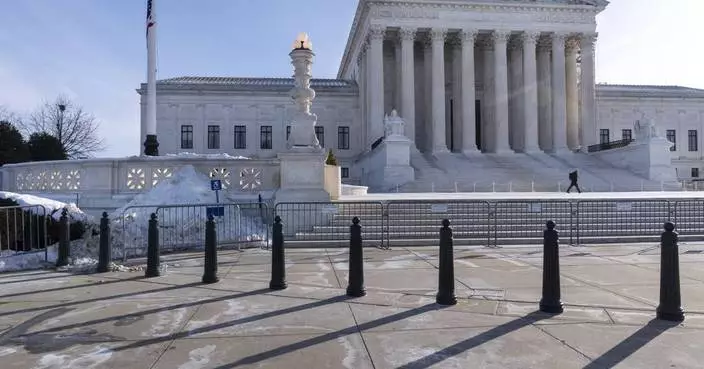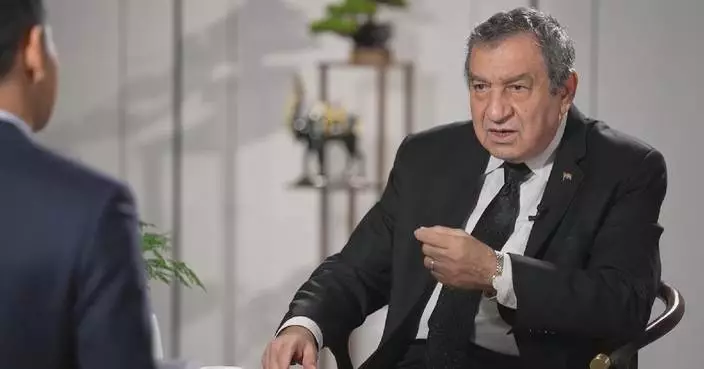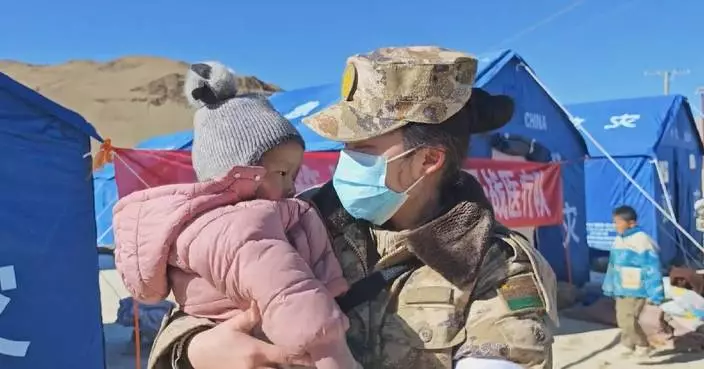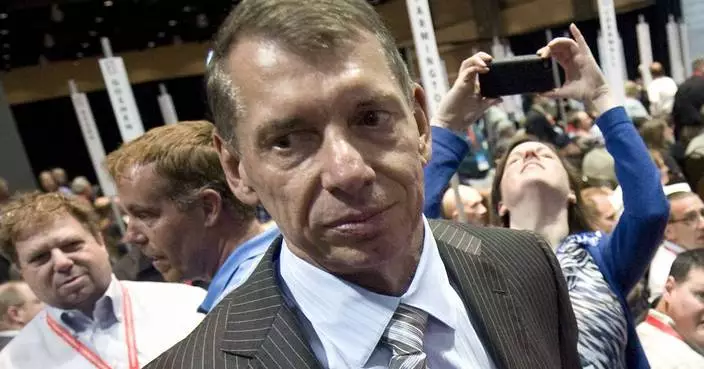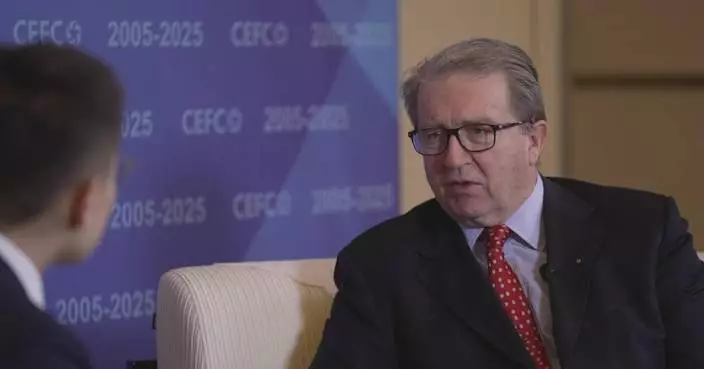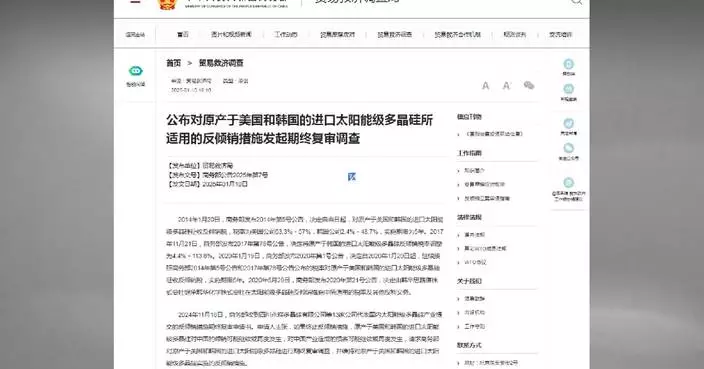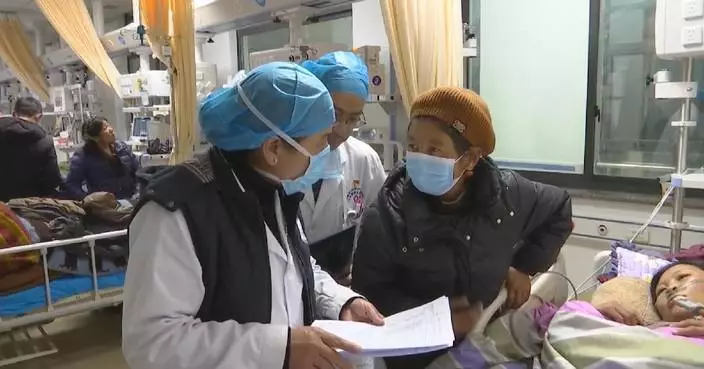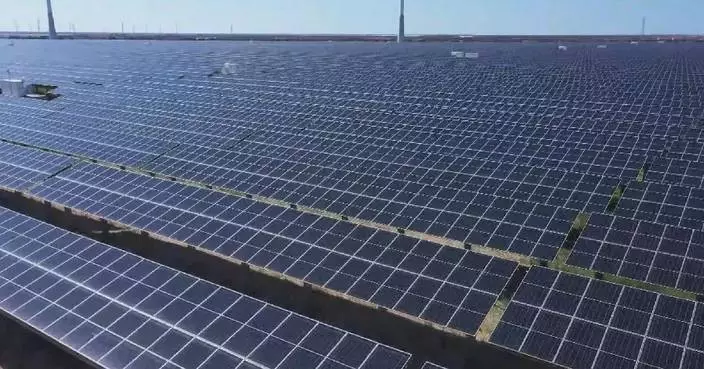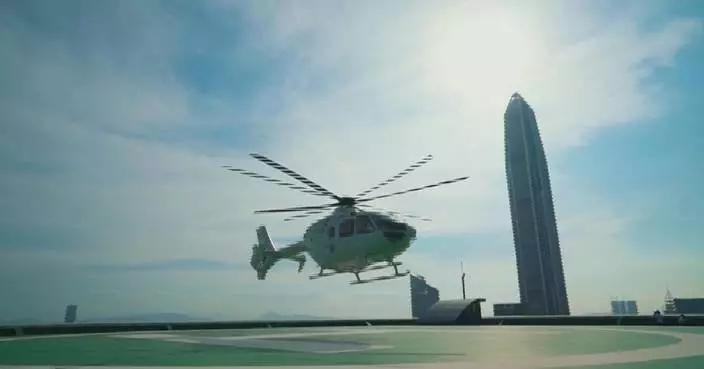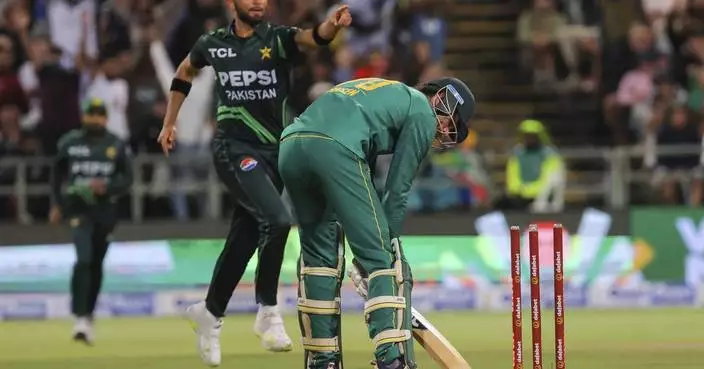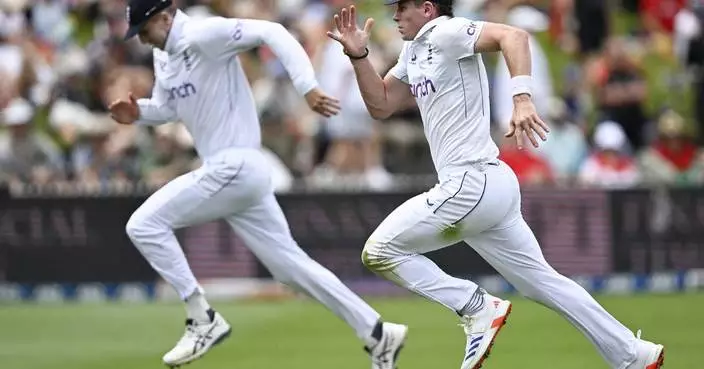KYIV, Ukraine (AP) — Ukrainian drones struck a major Russian fuel depot for the second time in just over a week on Sunday, according to a senior Russian regional official, as part of a “massive” cross-border attack on fuel and energy facilities that Kyiv says supply Moscow's military.
The strikes came days after Russia launched sweeping attacks on Ukraine’s already battered energy grid, threatening to plunge thousands of homes into darkness as winter tightens its grip over the region, and as Russia’s all-out invasion of its neighbor nears the three-year mark.
A fire broke out at the Stalnoy Kon oil terminal in Russia’s southern Oryol region, local Gov. Andrey Klychkov said in a post on the Telegram messaging app, adding Russian forces downed 20 drones targeting “fuel and energy infrastructure” in the province.
Russian independent news outlet Astra shared video of what it said was an explosion at the site, showing a massive orange blaze lighting up the night sky. While the clip could not be independently verified, it was later shared by a Ukrainian security official who described it as footage from Oryol.
The official, Andriy Kovalenko of the Council of National Security and Defense, claimed the Oryol fuel depot supplies Russian forces fighting in Ukraine and southern Russia, including the Kursk province where Ukrainian troops have dug in following a lightning incursion in August.
According to Klychkov, the Russian local governor, the fire was extinguished hours later and did not cause casualties or “significant” damage.
Ukraine's military previously claimed to have struck the Stalnoy Kon terminal with drones on Dec. 14, causing a “powerful” blaze.
Other key war-related developments from Ukraine and Russia:
— Russian President Vladimir Putin on Sunday vowed retaliation after Ukrainian drones the day before struck residential buildings in the city of Kazan, in the Tatarstan region over 600 miles (1,000 kilometers) from the front line. Speaking to Tatarstan's regional governor, Rustam Minnikhanov, Putin asserted that anyone attacking Russia has to reckon with Moscow inflicting “many times greater damage” in return, but did not elaborate. His remarks were carried by Russian state news agencies.
Minnikhanov's press service on Saturday said that eight drones attacked Kazan. Local authorities said there were no casualties.
— A 30-year-old man died on the spot Sunday in Ukraine's southern Kherson region after a Russian drone dropped explosives nearby, local Gov. Oleksandr Prokudin reported. Hours earlier, Prokudin said that two other civilians died as a result of Russian drone strikes on the province late on Saturday. A man in his late 40s suffered fatal injuries from a drone blast, and a woman was found dead under rubble after another drone slammed into her house.
— In the Kharkiv region in the northeast, a Russian drone strike Sunday severely injured a 56-year-old man as he walked down a road in the city of Kupiansk, local Gov. Oleh Syniehubov reported. He said the man would need to have at least one limb amputated as a result, but gave no further detail.
— In the Kyiv suburb of Brovary, debris from a Russian drone sparked a fire late on Saturday on the roof of a 25-story tower block, according to regional Gov. Ruslan Kravchenko. There were no immediate reports of any casualties.
— According to Ukraine’s Air Force, Russia launched 103 Iranian-made Shahed drones at its neighbor overnight into Sunday. Ukrainian air defense shot down 52 of the drones while another 44 failed to reach their targets, the force said in a statement, in a likely reference to electronic jamming.
— Meanwhile, Russia’s Defense Ministry said Sunday that its forces had intercepted 42 Ukrainian drones launched overnight at Russian territory. According to the ministry, 20 of those were over the Oryol region, where the local governor said a blaze tore through the oil terminal.
— Separately, Russian forces have continued grinding forward in Ukraine’s northeast, in addition to eking out gains near the eastern town of Kurakhove. On Sunday, Russia’s Defense Ministry reported that its troops had captured two northeastern settlements: Lozova in the Kharkiv region and Krasne in the Luhansk province. There was no immediate confirmation from Kyiv.
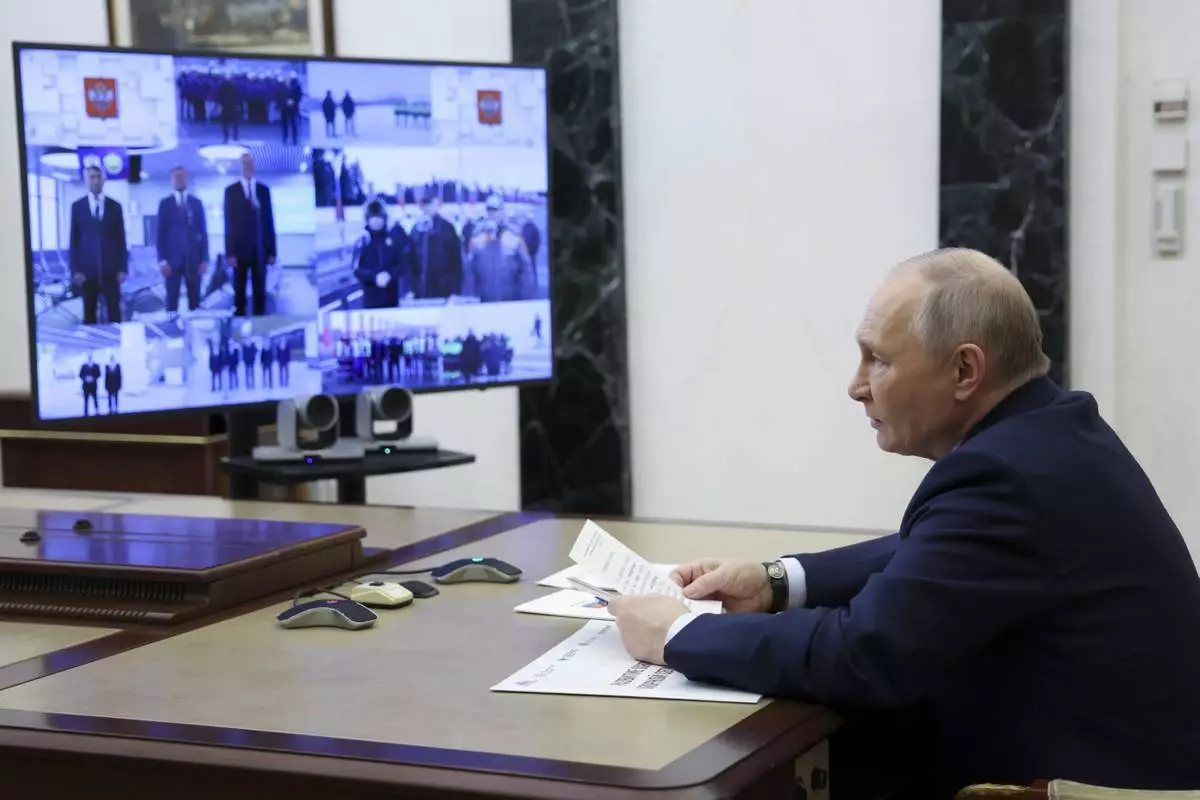
Russian President Vladimir Putin speaks as he attends a ceremony to launch new air and road infrastructure facilities in various country's regions via videoconference at the Kremlin in Moscow, Russia, Sunday, Dec. 22, 2024. (Alexander Kazakov, Sputnik, Kremlin Pool Photo via AP)
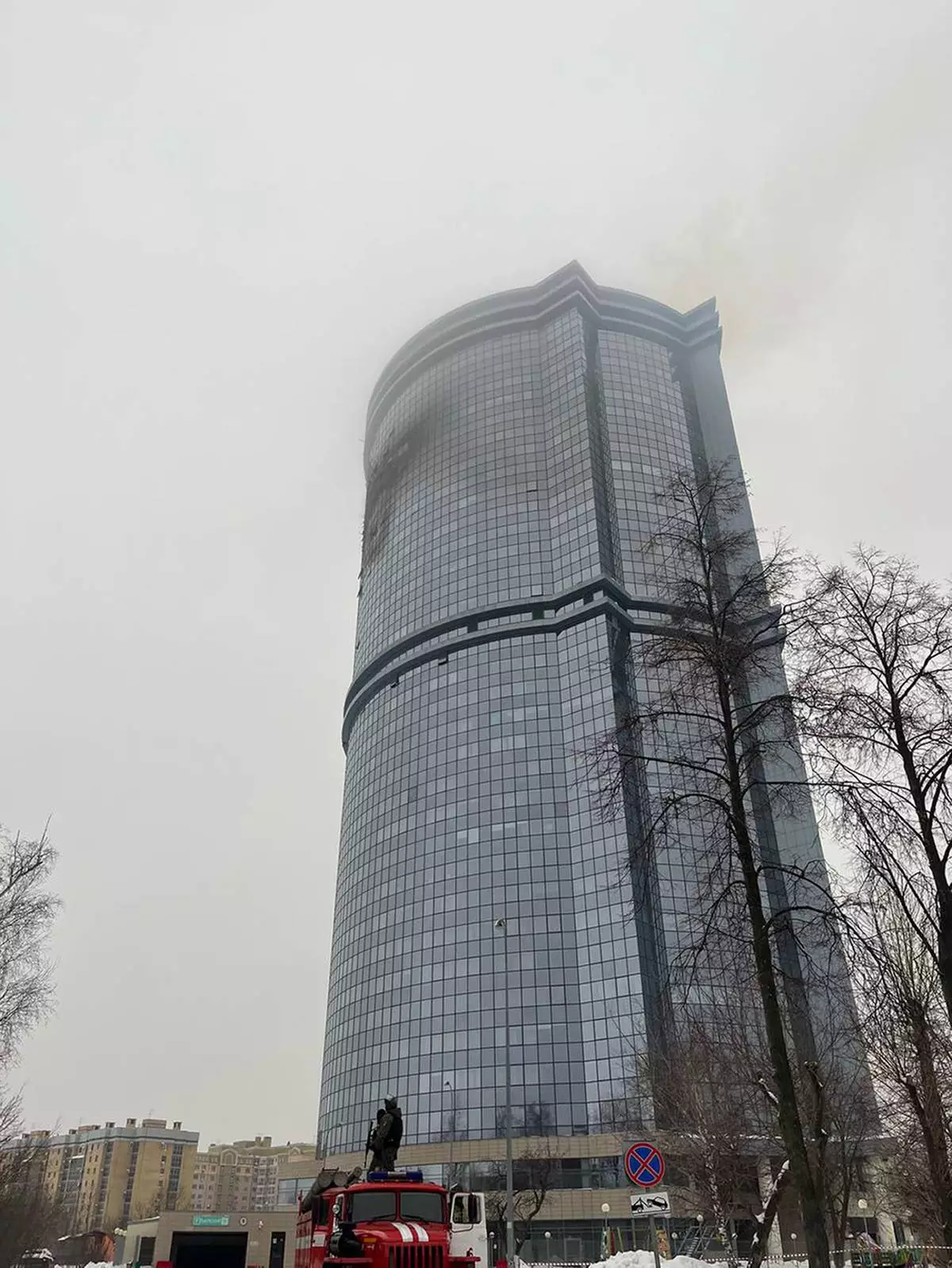
In this photo released by Official Telegram channel of the Kazan City Hall on Sunday, Dec. 22, 2024, a view of the damages at the residential complex called "Lazurnye Nebesa," or Azure Skies, in Kazan, Russia, following Ukrainian drone attacks. (Official Telegram channel of the Kazan City Hall via AP)
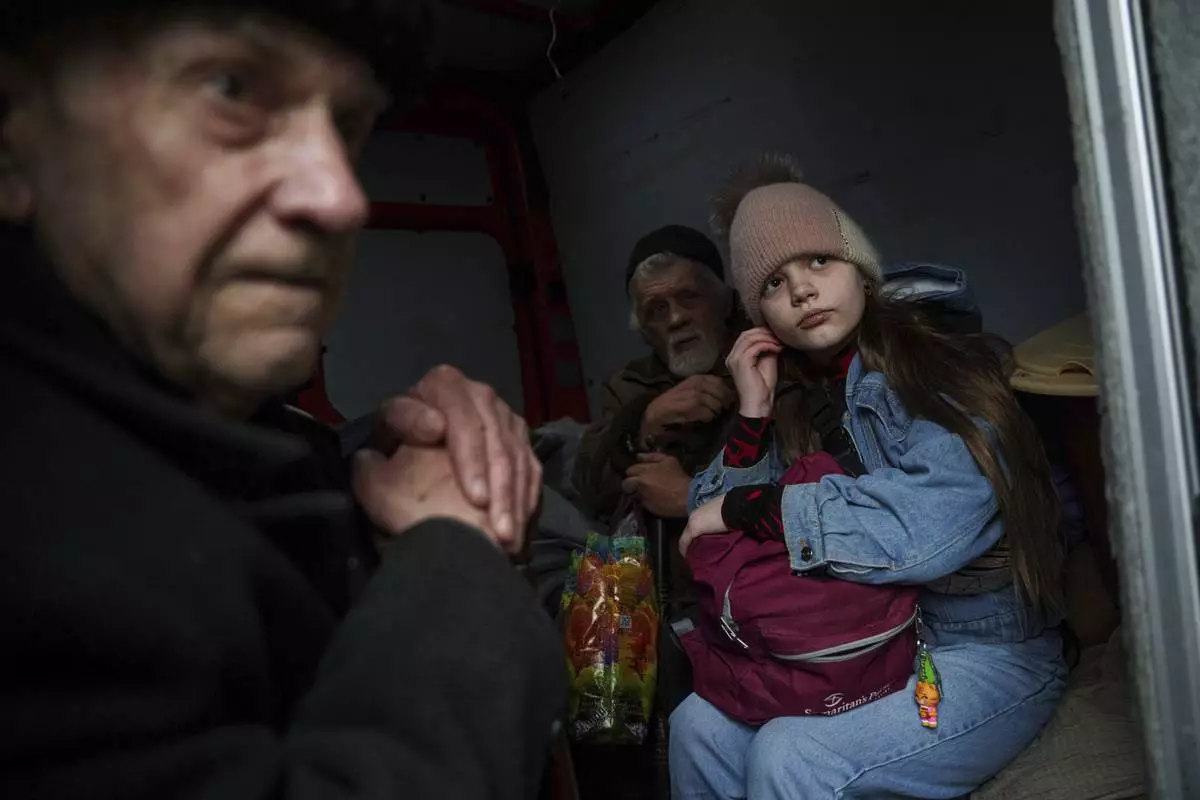
Hanna, 12, and her family sit ride inside a van during an evacuation from Pokrovsk, Ukraine, Saturday, Dec. 21, 2024. (AP Photo/Evgeniy Maloletka)


